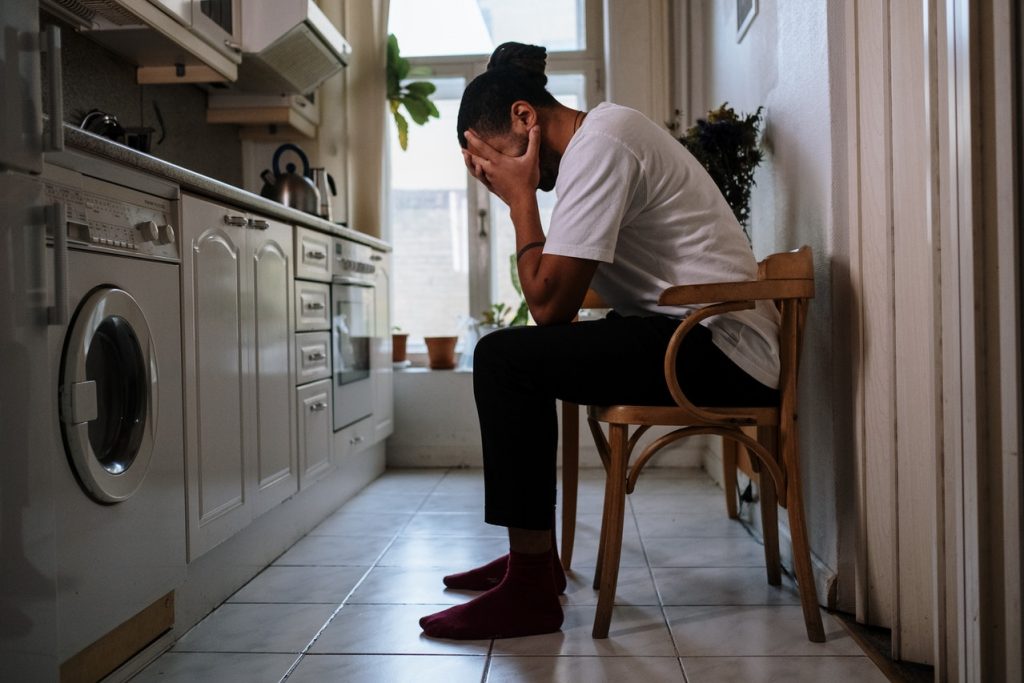How To Avoid Alcohol Withdrawal
If you’ve decided to quit drinking alcohol, you’re on track for change that can lead to a happier and healthier self. But, looking at the process ahead, you might be feeling intimidated. Giving up drinking is notoriously challenging, and requires many mental and physical adjustments.
One of the biggest challenges, especially if you’ve been drinking for a long time, is how to avoid alcohol withdrawal.
In truth, the only foolproof way to avoid alcohol withdrawal is to avoid excessive drinking. But if you are already struggling with your alcohol use, there may be things you can do to reduce, or even prevent, withdrawal symptoms.
You are not alone in wondering how to stop alcohol withdrawal. It may sound daunting but it can be achieved. Here’s how to assess your risk, and some of the most important strategies for staying safe.
Please note that extreme withdrawal can be dangerous and even deadly. This post is not meant to be a substitute for medical advice.
What are Some Common Withdrawal Symptoms?

Withdrawal symptoms from alcohol range from mild to severe, and can even be fatal in some cases.
If you have milder alcohol use disorder (AUD), you may only experience anxiety and hangover-like symptoms. If you typically drink heavily, withdrawal could mean a racing heart, rapid breathing, tremors, seizures, hallucinations, and even cardiac arrest. This is why it’s important to be careful around withdrawal and speak to a physician before attempting it on your own.
Read more: Alcohol Withdrawal Symptoms
What are Some Complications of Withdrawal?
There are some more severe complications that can also occur with alcohol withdrawal. According to the National Institute of Health, some complications that may occur are:
Seizures– As mentioned above, some patients experience seizures, which may increase in severity with subsequent alcohol withdrawal episodes. Seizures can range from mild to severe and can be life-threatening in some cases.
Delirium tremens (DTs)- These are characterized by hallucinations, mental confusion, and disorientation. Cognitive impairment and delirium may lead to a chronic memory disorder.
Psychiatric problems- This may include anxiety, depression, and sleep disturbance. These changes in physiology, mood, and behavior may persist after acute withdrawal has subsided, encouraging relapse to heavy drinking.
Wernicke-Korsakoff Syndrome- This syndrome is a disorder of the nervous system caused by a thiamine deficiency. It can result in severe cognitive impairment, delirium, abnormal gait, and paralysis of certain eye muscles. In rare cases, coma or death may occur if untreated.
Hallucinations and Perceptual Disturbance- This may include visual, auditory, and tactile hallucinations. One study indicated that patients who hallucinated tended to be younger at the onset of their drinking problems, consumed more alcohol per session, and had higher rates of other drug use than those who did not hallucinate.
Cardiovascular Complications- The heart is a major target of alcohol-induced organ damage, including disturbances of heartbeat rhythm. Arrhythmia generally occurs after a binge, rather than during intoxication.
Further study is required to understand the possible connection between withdrawal and increased sudden cardiac death.
Protracted Withdrawal Syndrome (PWS)- Data suggests that this syndrome may develop following withdrawal and may persist for at least one year. Some features of that persist beyond their typical period include tremors; sleep disruption; anxiety; depressive symptoms; and increased breathing rate, body temperature, blood pressure, and pulse.
Will I Experience Withdrawal if I Quit Drinking?
Essentially, that is a question your physician will need to answer. But it depends on how severe your drinking problem is, as well as other biological factors. How much alcohol you consume every day, how long you have been drinking, your age and your overall health are all things to take into account. Research also suggests some people are more genetically prone to severe withdrawal than others.
If you’ve ever experienced withdrawal before, or if you drink a significant amount every day, it’s best to assume you will experience some level of withdrawal.
Tips for Alcohol Withdrawal & How to Avoid Symptoms
Because withdrawal symptoms are so feared, many people wonder how to stop drinking without withdrawal, or if this is possible.
When attempting to quit drinking, protecting your health needs to be the priority. If you have milder AUD and need to stop drinking quickly, quitting cold turkey and “ripping off the Band-Aid” may work for you.
However, if you have been drinking heavily, your best chance at avoiding severe withdrawal is to gradually taper off or utilize medication.
Here are our best suggestions for how to prevent alcohol withdrawal:
Taper Off

This is all about reducing alcohol very gradually so your body can slowly adjust to the absence of the substance. For example, if you have been consuming five drinks a day, cut it down to four daily drinks for several days, then reduce it to three, and so on. Other tapering strategies include:
- Track your drinking. You can use a journal or drink-tracking app to record how many drinks you’ve had and decide on a minimum interval between drinks. Consider using a timer to alert you as needed.
- Stay consistent with quantity and your definition of “one drink.” The standard drink definition is 12 ounces of beer, 5 ounces of wine, or 1.5 ounces of liquor. Choosing drinks with a consistent ABV will make this an easier task.
- Switch to a drink you like less. The truth is drinking is less appealing if you don’t enjoy the taste. Think of alcohol as your withdrawal medication, rather than something you enjoy!
- Dilute your drinks a bit more each day until you reach 0% ABV. For example, make a pitcher of a mixed drink for the day, and measure a smaller quantity of alcohol into it each morning until you get to zero. Or add some water to your wine or beer, a little more each day.
- Space drinks out with water and nonalcoholic substitutes. Alternating with a nice-tasting nonalcoholic drink can help you delay the next serving of alcohol. Water and electrolytes are especially important since quitting alcohol can dehydrate you.
Read more: How To Gradually Quit Drinking
Consider Medication
Medications like naltrexone, gabapentin, baclofen, and topiramate can help limit your alcohol cravings and make it easier to cut back over time. Gabapentin, for example, can reduce withdrawal-related anxiety, making it easier to stay the course.
Naltrexone can allow you to continue drinking while retraining your brain to find alcohol less enjoyable. This can cause some people to lose interest in alcohol and stop altogether.
As for medications that reduce withdrawal symptoms, benzodiazepines such as Ativan and Xanax are commonly prescribed by doctors. Baclofen and gabapentin can be useful as well.
However, these medications should not be taken without supervision. Benzodiazepines themselves can be very addictive, and it’s important to have a medical professional monitoring dosage, side effects, and overall safety.
Read more: Medication for Alcohol Cravings
Seek Medical Support
As previously stated, extreme withdrawal can be dangerous and even deadly. This post should not substitute for medical advice. If you wish to quit drinking alcohol, and you expect withdrawal symptoms, talk to your doctor.
A medical professional can determine the severity of your dependency, and help you figure out the best way to stay safe and reach your goals.
Your doctor may recommend detoxification, medications, and/or relapse prevention training (including seeing a therapist or a coach). In more severe cases, you might even consider inpatient medical detox. Staff at these facilities can monitor your well-being, and they will know how to stop alcohol withdrawal symptoms, or at least control them if they become life-threatening.
Beyond the initial detox phase, medical professionals can also assist you with the longer-term adjustment to sobriety—especially if you experience post-acute withdrawal syndrome (PAWS). Therapists and coaches can help you adapt by recognizing drinking triggers and developing alternative coping mechanisms, along with healthier habits and routines.
Learn more: What Level of Care Do I Need For Alcohol Misuse?
Consider Telemedicine for Support
If you have been putting off getting help because of stigma or inconvenience, telemedicine with a specialized alcohol reduction program may be a great option for you.
The decision to curb or stop drinking is a healthy one, but it must be approached carefully. Stopping suddenly can be very dangerous because your body and brain need time to adjust to the absence of alcohol. The impact of quitting abruptly varies in severity from person to person but can lead to severe and even life-threatening symptoms.
There is no way to guarantee that withdrawal symptoms won’t appear. But tapering off and taking medication can reduce the impact, and even help you avoid alcohol withdrawal. Ultimately, your safest bet is to speak with a medical professional before quitting, especially if you drink heavily.
While Ria Health does not provide medical detox, we do support people in tapering off alcohol at home. Our medical team can assess the severity of your alcohol dependence, and if it appears safe, prescribe medications to help you ramp down your alcohol use.
Our program also offers weekly coaching, and a breathalyzer to help you keep track of your tapering goals. The whole process happens online through a smartphone app, tailored to your personal schedule.
We can also help you identify possible underlying causes of your drinking and help you develop alternative coping strategies and healthy habits.
For more information, schedule a call with a member of our team today.
Will insurance cover treatment? Verify Coverage
Have Questions? Call (800) 504-5360



